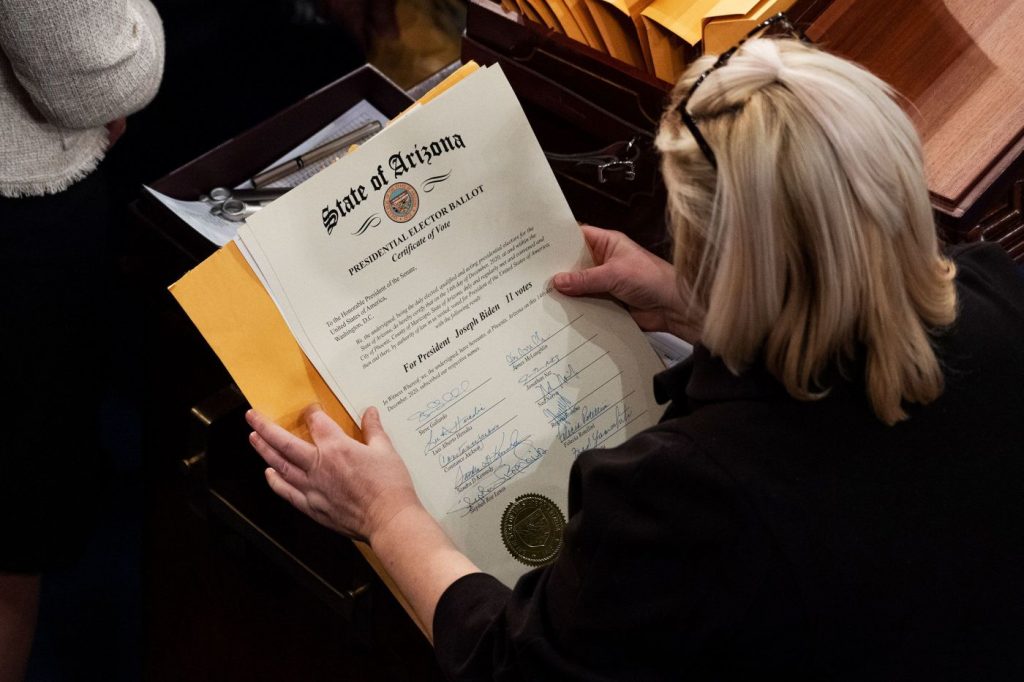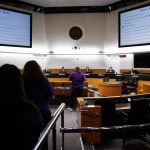By Zachary Cohen | CNN
Prosecutors in Arizona have issued several grand jury subpoenas in recent weeks to people connected to efforts by former President Donald Trump and his allies to overturn the 2020 election in that state, according to multiple sources familiar with the matter.
The subpoenas suggest the state-level probe is accelerating ahead of the 2024 presidential election, when Trump is expected to once again be on the ballot as the Republican nominee. Sources told CNN that Arizona Attorney General Kris Mayes could be nearing a decision on whether to bring criminal charges.
Mayes, a Democrat, has primarily focused her investigation on the 11 fake electors from Arizona and those who helped organize them, but sources familiar with the probe say she is also looking into individuals tied to the former president’s national campaign as well. Politico first reported the grand jury subpoenas were issued.
Arizona prosecutors have asked witnesses about meetings attended by Trump where the plan to put forward slates of fake GOP electors across the country was mentioned, including one in the Oval Office on December 16, 2020, the sources said.
They have also inquired about several other boldfaced names who aided Trump’s attempt to upend Joe Biden’s 2020 election win, including conservative attorney John Eastman, the sources added.
Questions about Eastman, who was among those pushing fringe legal theories for overturning the 2020 election results and intimately involved in the fake electors scheme, primarily focused on his actions in the weeks and days leading up to January 6, 2021, according to the same sources.
Among those who have been interviewed by Arizona prosecutors in recent months is pro-Trump attorney Kenneth Chesebro.
CNN has identified Chesebro as one of Trump’s unindicted co-conspirators in special counsel Jack Smith’s federal indictment of the former president, which details how he was a driving force behind the fake electors plot.
Chesebro has also pleaded guilty in the sprawling conspiracy case in Georgia for his role in efforts to overturn the 2020 election results there and met with prosecutors from several other states who are investigating the fake electors plan.
Arizona prosecutors asked Chesebro about the December 2020 Oval Office meeting he also described during an earlier interview with investigators in Michigan, sources said.
During that Oval Office meeting, Chesebro says he told Trump he could still win – and explained how the “alternate electors” he helped assemble in Arizona and six other states gave Trump an opening to continue contesting the election until Congress certified the results on January 6, 2021, according to audio of his Michigan interview obtained by CNN.
“I ended up explaining that Arizona was still hypothetically possible — because the alternate electors had voted,” Chesebro told Michigan state investigators, later adding that this made it “clear (to Trump) in a way that maybe it hadn’t been before, that we had until January 6 to win.”
“And that, you know, created a real problem,” Chesebro added.
CNN has reached out to lawyers for Eastman and Chesebro for comment.
Eleven fake electors for Trump convened at the state Republican Party headquarters in Phoenix, on December 14, 2020. They broadcast themselves preparing to sign the documents, allegedly provided by a Trump campaign attorney, claiming that they were the legitimate representatives of the state’s electoral votes.
By that time, Trump’s loss in the state – by fewer than 11,000 votes – had already been certified by its Republican governor, affirming that Biden won Arizona in the 2020 presidential election.
But in the weeks that followed, some of the fake electors continued to push for Vice President Mike Pence to reject the legitimate Democratic slate of electors.
CNN’s Kyung Lah, Marshall Cohen and Katelyn Polantz contributed to this report.


